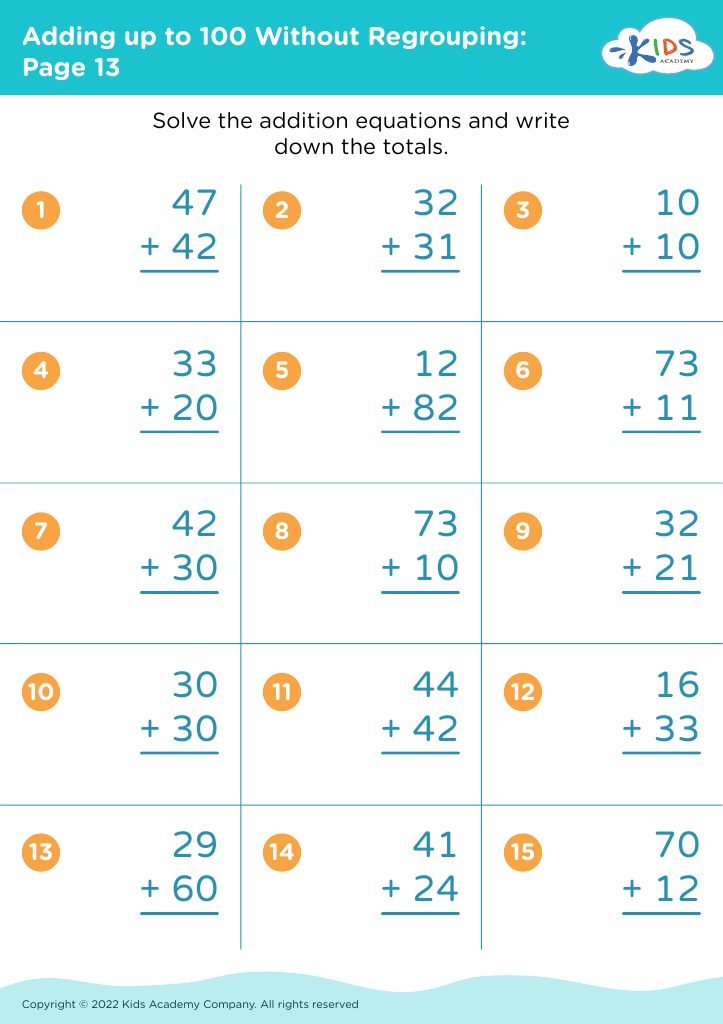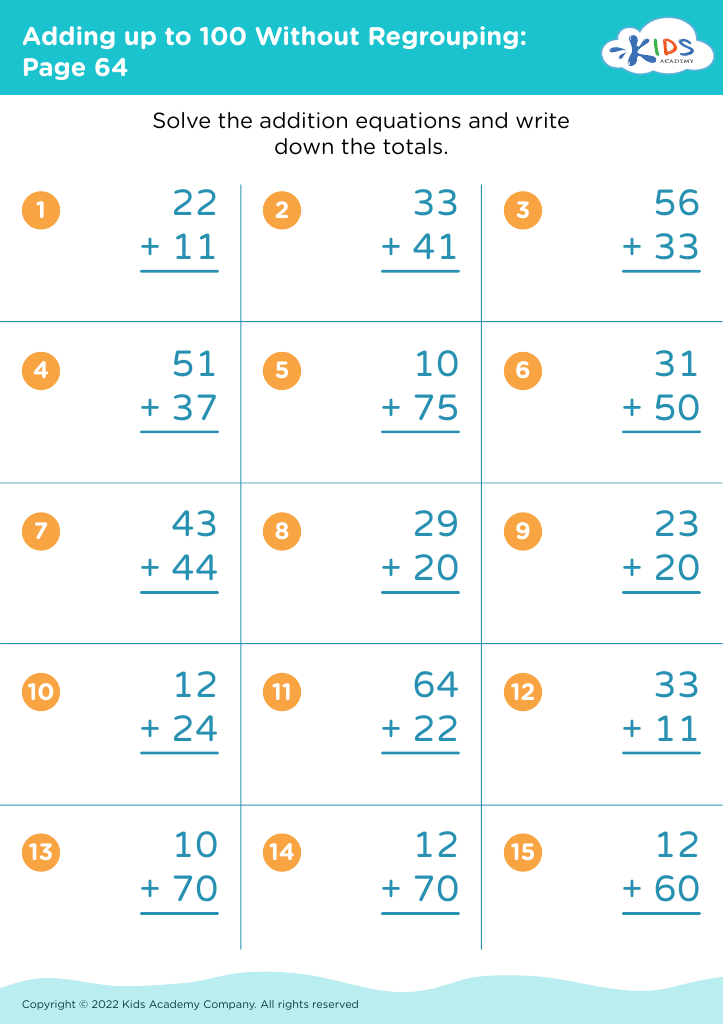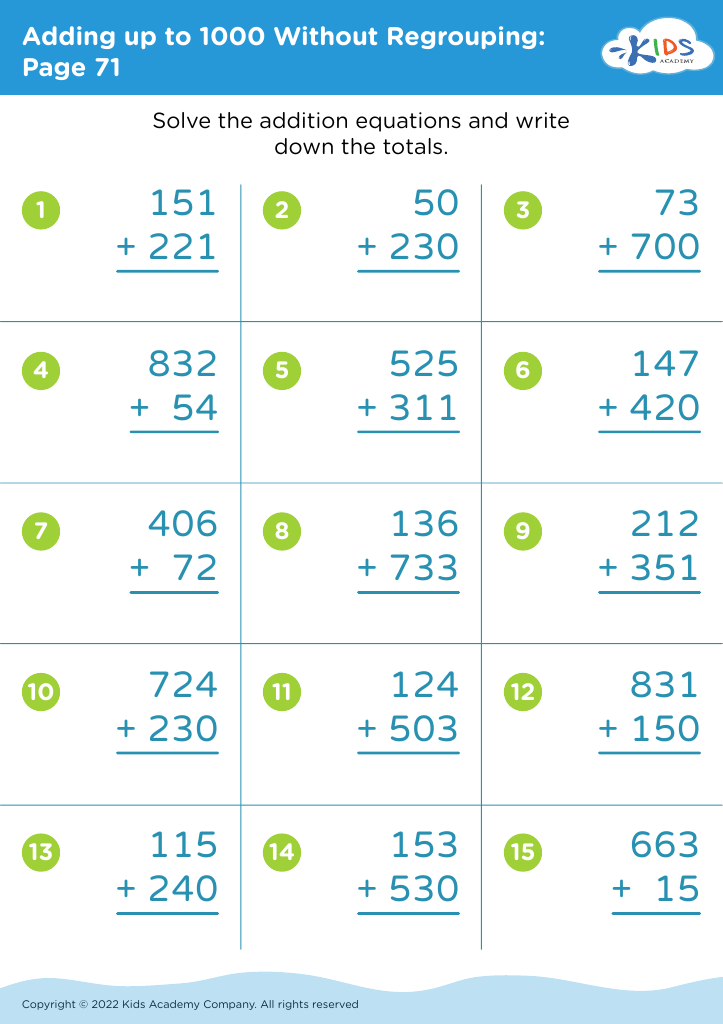Understand sequences Worksheets for Ages 5-9
5 filtered results
-
From - To
Unlock the world of sequences with our engaging Understand Sequences Worksheets for ages 5-9! Designed to enhance your child's critical thinking and problem-solving skills, these worksheets provide a fun and interactive way to grasp the concept of patterns and order. With colorful illustrations and age-appropriate activities, children will enjoy learning to identify, extend, and create sequences in a variety of engaging formats. Whether at home or in the classroom, our printable worksheets are perfect for powerful learning moments. Foster your child's numeracy and logic skills while making learning enjoyable! Explore our collection today and watch your little learners thrive!
Understanding sequences is crucial for children aged 5-9 as it lays the foundation for essential cognitive skills and logical reasoning. This age group is at a pivotal stage in their cognitive development, where they begin to recognize patterns and relationships among numbers, which are fundamental in subjects like math, science, and language arts.
Firstly, grasping sequences helps children develop vital problem-solving skills. Recognizing patterns enables them to make predictions, an essential part of both academic learning and everyday situations. For example, understanding the sequence of numbers (like counting) or the days of the week aids in their ability to organize thoughts and tasks.
Secondly, sequences enhance language skills by allowing children to comprehend and construct narratives effectively. They learn to arrange events in a logically sequenced manner, which is critical for storytelling and reading comprehension.
Lastly, sequences encourage the development of critical thinking. As children progress from simple patterns to more complex sequences, they learn to analyze and draw conclusions, preparing them for future academic challenges. Given these foundational benefits, it's vital for parents and teachers to prioritize teaching sequencing to ensure holistic development in young learners. Fostering these skills early can cement a lifelong love for learning and thinking logically.










.jpg)











